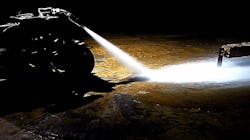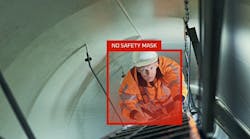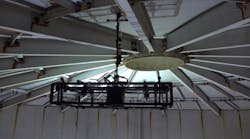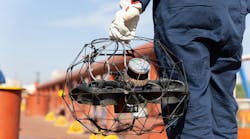SBM Offshore, Ambipar develop robotic system for FPSO tank cleaning
New release!
Offshore Safety Systems & PPE Special Report 2025
Cleaning cargo oil tanks on FPSOs typically involves significant health and safety risks for workers, who operate in restricted spaces under high temperatures and in contact with chemical residues.
SBM Offshore and environmental specialist Ambipar have released a new system for cleaning FPSO tanks using remotely operated robots to carry out the process in a safe way that they say significantly reduces confined space risks and potential casualties.
The technology has already been successfully applied to an FPSO in offshore operation. The robot removed heavy oily sludge, while the onboard team monitored the process 24/7 remotely from a safe location outside the tank.
This new system eliminates the need for people to enter the tanks during the cleaning activity, which has been identified as one of the most dangerous steps in the operation, and it is designed to reduce operational and environmental risks.
This system aims to protect workers’ lives while also reducing operation time and the environmental impact of these offshore activities.
“By automating a traditionally hazardous process, we are not only enhancing safety but also boosting operational efficiency and reducing environmental impact,” said Rogério Calderaro, Ambipar's head global of industrial services.
The new approach also reduces the costs and timeframes involved in the cleaning process.




